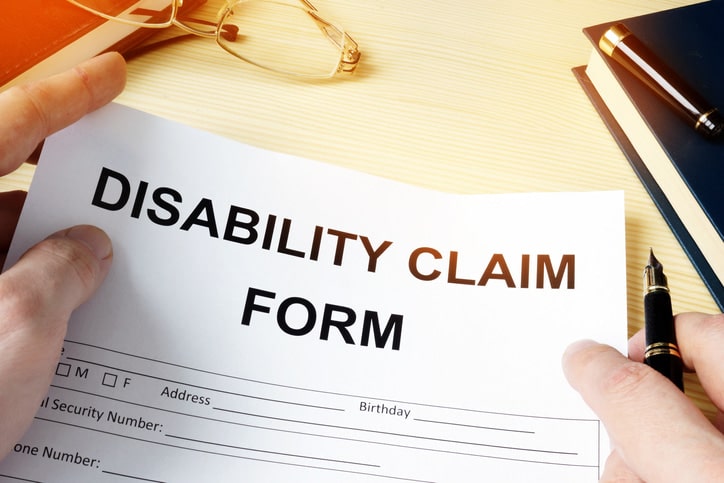Tag: Motions and Appeals
Delray Beach Life Insurance Disputes Attorney
When you lose a spouse or parent who was careful enough to get a life insurance policy and faithful with paying premiums till death, you would expect that you would automatically get the monetary proceeds from the policy. It can then come as a rude shock if the life insurance policy provider begins to delay or unfairly deny your claim.
While no amount of money can bring back your loved one, the monetary proceeds from their life insurance policy can go a long way in making things better for you. Therefore, having your claim to those proceeds disputed or denied is the last thing you want to deal with.
Many people depend on the payout from life insurance policies for financial support after losing a family member. If you have had your claim to your loved one’s life insurance policy delayed or unfairly denied, you need to hire an expert and experienced life insurance dispute attorney.
At Dyson Law PLLC, our life insurance dispute attorneys have a cumulative experience of almost 13 years litigating insurance claims. We have fought on behalf of many Florida residents against big insurance companies and have returned highly satisfactory results for our clients. Reach out to us today at 561-903-4542 and let us protect your rights and financial interests.
What can cause a life insurance dispute?
Most life insurance policy providers honor claims filed by beneficiaries. However, there are those few who will do everything they can to avoid paying the monetary proceeds to beneficiaries when the policyholder dies. Some of the reasons they may give you include:
Life insurance policy did not cover the type of death
Insurance companies have a list of scenarios in which they will not honor the life insurance policy. This list is usually full of exclusions written in legalese and vague terms that may be unfair, or even illegal. The exclusions include the following:
- Death resulting from alcohol intoxication
- Challenging the type of accident in which the insured died
- Death resulting from suicide or war-related events
However, they use these exclusions routinely and often succeed in denying claims. We are familiar with these gimmicks and can help you overcome whatever the insurance companies throw at you.

Default in payment of premiums
Life insurance policies are usually active as long as the premiums are paid. If there is a default in paying premiums, the policy may be terminated. Insurance companies typically cite this as a reason for denying claims even when such claims should not be denied.
However, there is often more to the incidence of default than meets the eye. Sometimes, these payments may actually have been made but failed to reach the insurer due to no fault of the policyholder. Other times, the default may have been recorded in error by an employee of the insurance company. Other times, the premium bill was sent to the wrong address.

Policyholder changed the beneficiary close to the time of death
If a policyholder was seriously ill and made changes to his or her insurance policy shortly before passing, family members who were not favored by the change could contest it, stating that the policyholder was not of a sound mind when making the changes. They could also claim that the beneficiary took advantage of the policyholder’s illness to influence the change in his or her favor.
What do I do if my claim is denied?
Get in touch with a life insurance dispute attorney. Do not attempt to take on the insurance company by yourself. Our life insurance dispute attorneys at Dyson Law PLLC can help you.
You will need to get in touch with the insurance provider to find out why your claim was denied. Normally, they should spell out the reason(s) for denial in their initial denial letter. However, the reasons may be vague or not specific enough. It is within your rights to ask them for clearer explanations.
The insurance provider should also provide you with information on how to appeal the denial or have it reviewed.
Under Florida laws, Fla. Stat. § 717.107(1), you have a maximum of five years in which to take action on your denied claim.
The law holds that any life insurance policy which has matured and has not been claimed in five years is presumed unclaimed and liable for forfeit.
We can help you
At Dyson Law PLLC, we understand the pain of dealing with a denied claim after losing a loved one. We understand how much strain it puts on you, which is why we ensure to give you personalized attention when you come to us.
No insurance dispute is too big or too small for us to handle. We have been doing this for almost thirteen years and we have gained extensive experience over this time. We have faced off with some of the biggest insurance companies around on behalf of our clients with satisfactory results. We can do the same for you.
If you are in Palm Beach County, including Delray Beach, Boynton Beach, Boca Raton, and Lake Worth, call to speak with one of our attorneys today. In deserving circumstances, we may be able to take on your case on a contingency basis, meaning that we will not take any fee from you unless we return a win on your behalf.
Reach out to us today on 561-903-4542 or through our contact page to schedule a free initial consultation.
The Defendant has filed a Motion to Dismiss against me. Will I get my day in Court? By Peter A. Dyson, Esq.
A Motion to Dismiss or an Order granting a Motion to Dismiss
A Motion to Dismiss or an Order granting a Motion to Dismiss can mean a few different things. The good news is that most of the time, it is only a bump in the road, and you will be allowed to continue your case after updating your Complaint. I want to discuss with you the three most typical Motions to Dismiss.

Defendants file Motions to Dismiss to attack your Complaint, or lawsuit. A lawsuit (Complaint) makes allegations to what the Defendant did wrong and what you want to right the Defendant’s wrongdoing.
Defendants file Motions to Dismiss to attack your Complaint, or lawsuit. A lawsuit (Complaint) makes allegations to what the Defendant did wrong and what you want to right the Defendant’s wrongdoing.
The most common Motion to Dismiss happens when the Defendant claims that the lawsuit is not detailed enough or does not contain a specific language. Florida Rules of Civil Procedure 1.140 (e) controls that type of Motion.
In that type of Motion to Dismiss, the Defendant says that it cannot respond to the Complaint because it is too vague or they do not understand the allegations. Your attorney may agree and amend the Complaint, or they may fight it in Court.
You or your attorney only need to put a short and plain statement of facts in your Complaint under Florida Rule of Civil Procedure 1.110 (b). You do not need to plead every exact detail, just the ultimate truths that, if proven, get you to Trial. There is an old, but good, the case on that issue called Kislak vs. Kreedian, 95 So.2d 510 (Fla. 1957). https://scholar.google.com/
If the Court agrees and says the Complaint needs more detail, you should not worry. You and your lawyer get another chance and can amend or update the Complaint to put in the detail level required by the Court. While the Court did dismiss your Complaint, you have the opportunity to correct it and move forward. The effect is that it is only a delay in your case, and you will proceed after you make the corrections.
Sometimes a Defendant will try to dismiss a Complaint because they say it is not valid. When reading a Complaint, Defendants will accuse you and your lawyer of lying because they think the allegations are false. Again, there is usually nothing to worry about at this point.
How does the Court respond to a Defendant claiming that the Complaint is not true? The short answer is that it usually does not matter. Neither does it matter whether the Defenses are true at this point, either. At this stage, a Judge does not have the information to figure out who is telling the truth. Getting that information is called discovery.
The Courts ingeniously handle this dilemma. In deciding a Motion to Dismiss, the Court must treat all of the allegations as true. There are a lot of cases that address this including Adams v. Kent Insurance Company, 431 So.2d 335 (Fla. 4th DCA 1983)https://scholar.google.
Let us talk about one exception to that rule. One main limitation is that the allegations cannot contradict a document that is attached to the Complaint. Safeco Ins. Co. v. Ware, 401 So.2d 1129 (Fla. 4th DCA 1981). https://scholar.google.
The second most common reason for a Motion to Dismiss is that the correct elements are not in the Complaint. What is an element? Every Count under a lawsuit has to contain specific allegations depending on the type of claim. For instance, in a disability lawsuit, one of the elements is that you have to have a disability. If you do not allege disability, your suit does not have a recognized cause of action. It is like saying the right words to cast a spell in the Harry Potter World. The spell does not work if you do not say the correct words.
The elements are all different depending on your type of case.
You may still face a Motion to Dismiss if the facts of your case do not fit neatly with the elements or seek to change the law. One example is technology will change the law by changing the elements. Libel or publishing false information that damages a person’s reputation has elements. But what libel was 100 years ago is not what libel is today. The elements had to adapt because a publication had to expand to include the internet. The law had to adapt to the changing world.
But sometimes the facts will not fit the law, and the Court will dismiss a Count or the entire case. If your attorney cannot ethically make the allegations because they are untrue, the Court will dismiss an individual Count or Complaint, and you will not have your day in Court on those issues.
The third type, which does end the case, is a Motion to Dismiss for Fraud. This Motion is not filed at the beginning of a case but happens after depositions and written discovery. To prevent dismissal for fraud, tell the truth. That includes telling your attorneys the truth. It is that simple. If a Court grants the Defendant’s Motion to Dismiss for fraud, your case is over.
A mistake or genuinely forgetting a fact is not enough to have your case thrown out for fraud. It is reserved for extreme circumstances when the whole process is tainted. It is not enough that there is a lie, factual inconsistency, or false statement. It has to corrupt the entire process. Because of that, it is very fact-specific whether a Court will grant the Motion to Dismiss for Fraud.
For the other side to win on a Motion to Dismiss for Fraud, they have to prove that you “sentiently set in motion some unconscionable scheme calculated to interfere with the judicial system’s ability impartially to adjudicate a matter by improperly influencing the trier of fact or unfairly hampering the presentation of the opposing party’s claim or defense.” Duarte v. Snap-On, Inc., 216 So.3d 771 (Fla. 2d DCA 2017). https://scholar.google.
If you are facing this Motion, rely on your attorney’s advice.
There are other reasons for a Motion to Dismiss, but these are the three most common ones.
Except for a Motion to Dismiss for fraud, Motions to Dismiss are commonly blips or delaying tactics. You have to correct the lawsuit and move on.
If you need legal help, please contact the experienced trial attorneys at Dyson Law PLLC at 561-903-4542. dysonlaw.com.
